
Meozole L Capsule SR 75mg/40mg
Manufacturer
Mestra Pharma Pvt Ltd
Salt Composition
Levosulpiride (75mg) + Esomeprazole (40mg)
Key Information
Short Description
Meozole L Capsule SR 75mg/40mg is a prescription medicine used to treat gastroesophageal reflux disease (acid reflux) by relieving symptoms such as heartburn, stomach pain, or irritation.
Dosage Form
Capsule SR
Introduction
Meozole L Capsule SR 75mg/40mg is a prescription medicine used in the treatment of gastroesophageal reflux disease (acid reflux). It works by relieving the symptoms such as heartburn, stomach pain, or irritation. It also neutralizes the acid production in the stomach to prevent discomfort.
Directions for Use
Take this medicine in the dose and duration as advised by your doctor. Swallow it as a whole. Do not chew, crush or break it. Meozole L Capsule SR 75mg/40mg is to be taken empty stomach.
How it works
Meozole L Capsule SR 75mg/40mg is a combination of two medicines: Levosulpiride and Esomeprazole.
Quick Tips
Do not consume alcohol while taking Meozole L Capsule SR 75mg/40mg as it can increase the risk of stomach damage. Long-term use may cause weak or broken bones. Take adequate intake of dietary calcium and vitamin D or their supplements. Do not take Meozole L Capsule SR 75mg/40mg for longer than prescribed.
Related Medicines
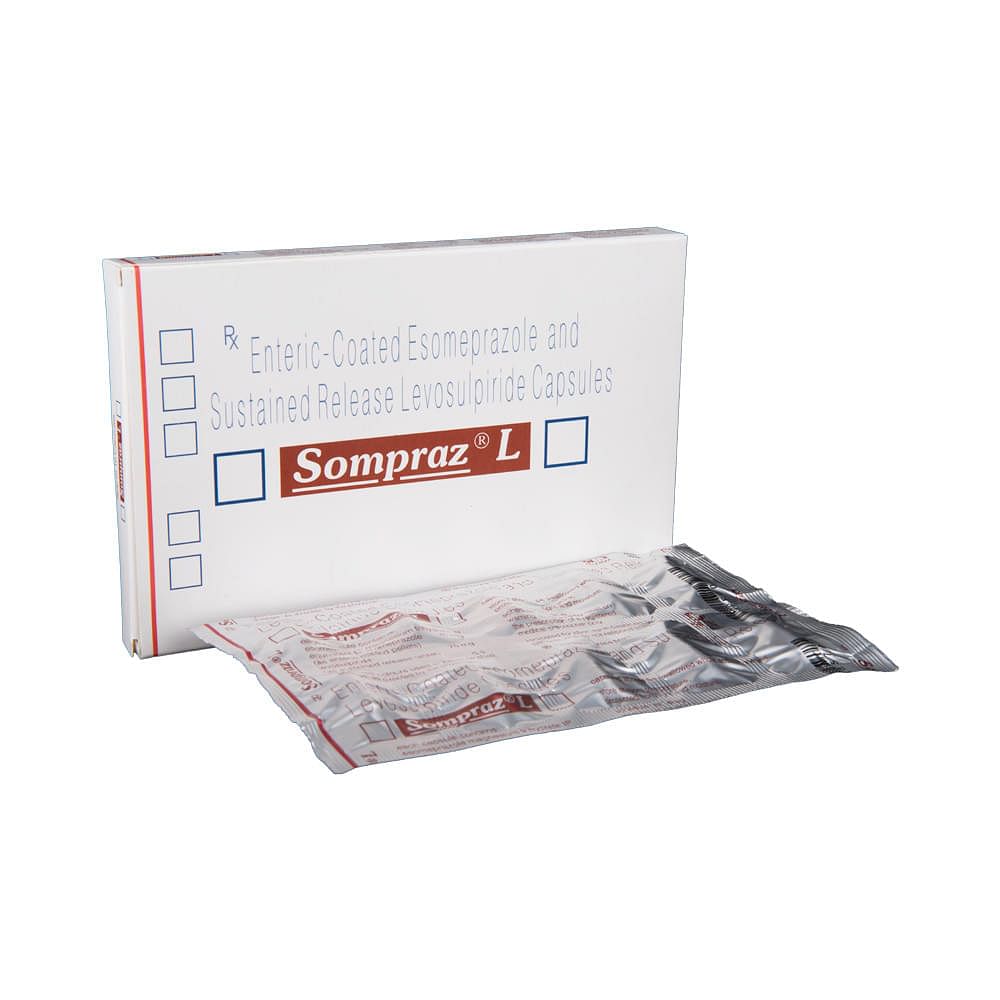
Sompraz L Capsule
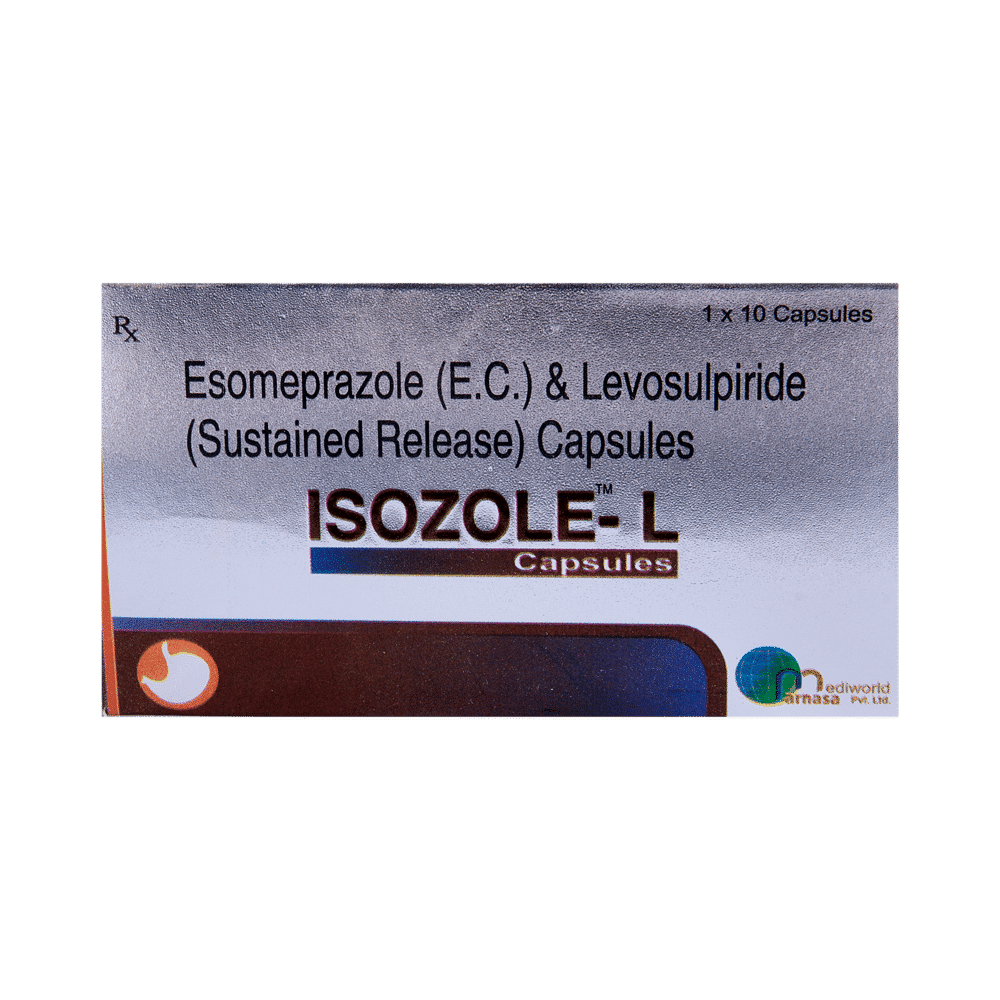
Isozole-L Capsule SR
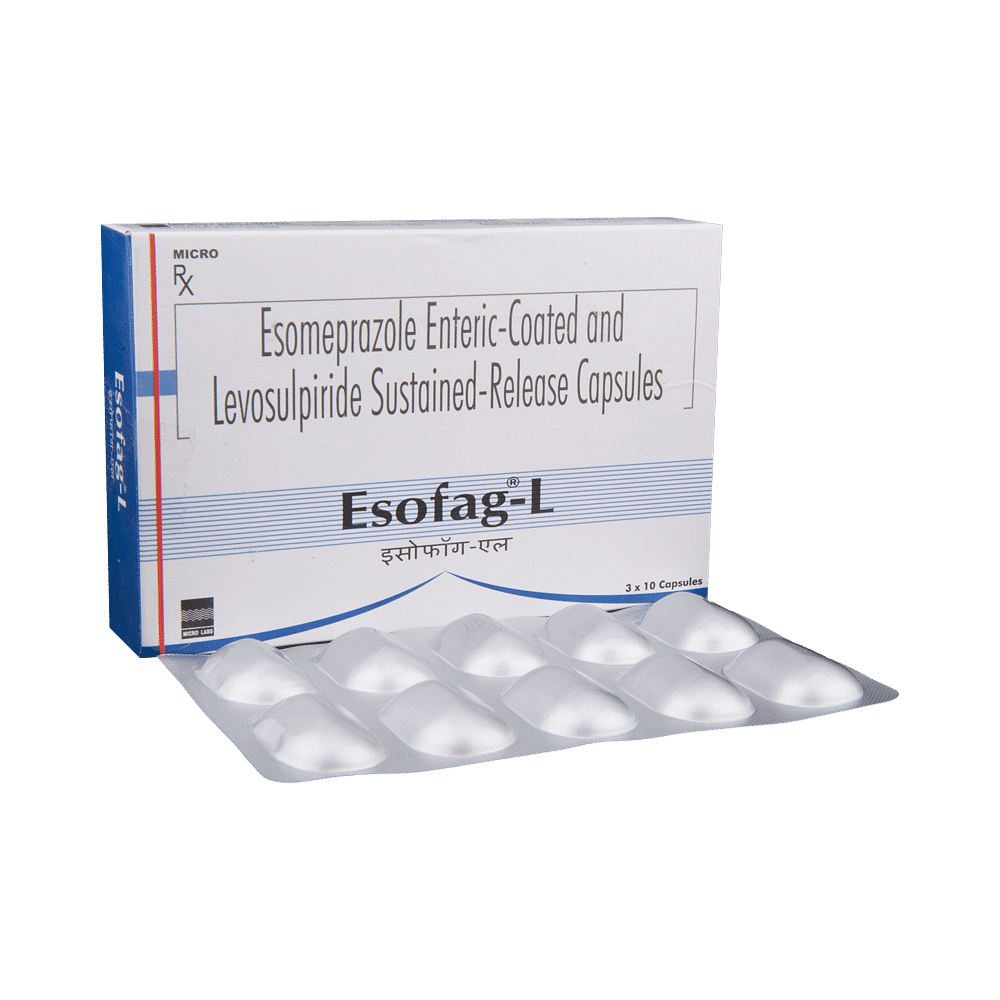
Esofag-L Capsule SR
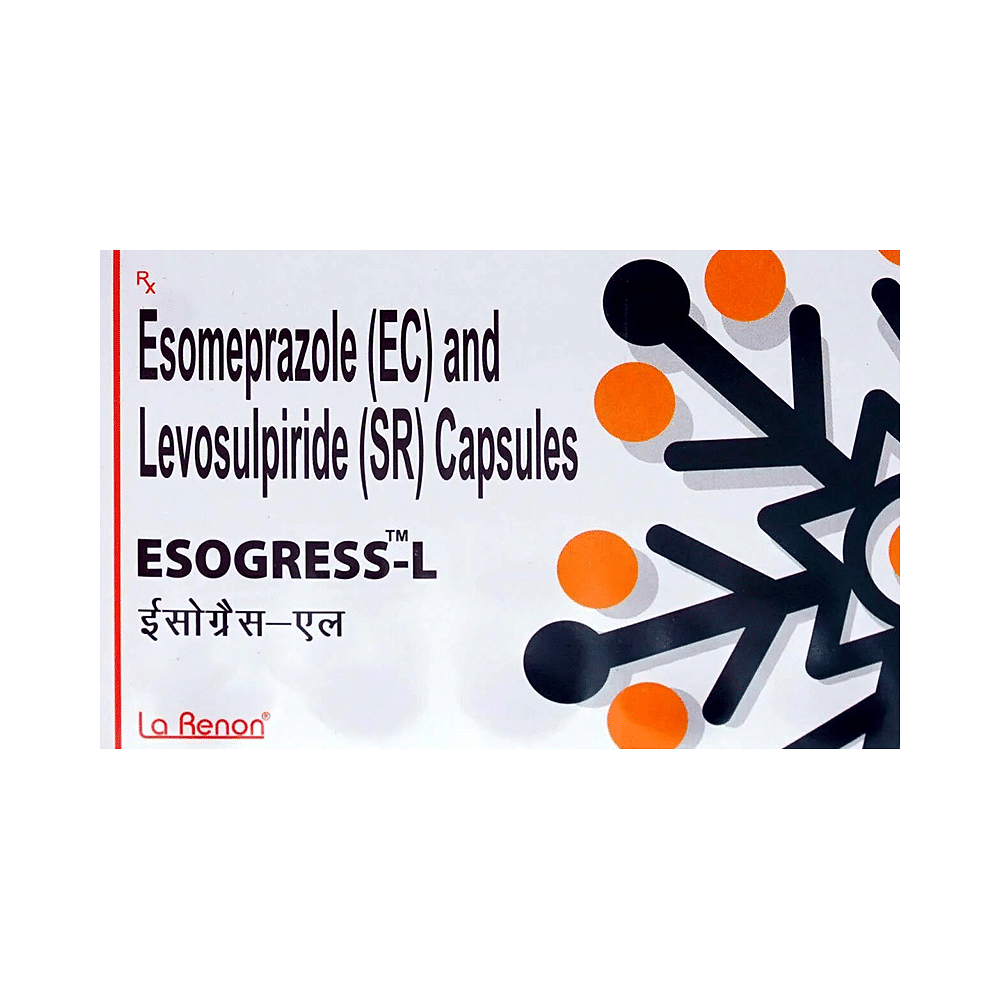
Esogress-L Capsule
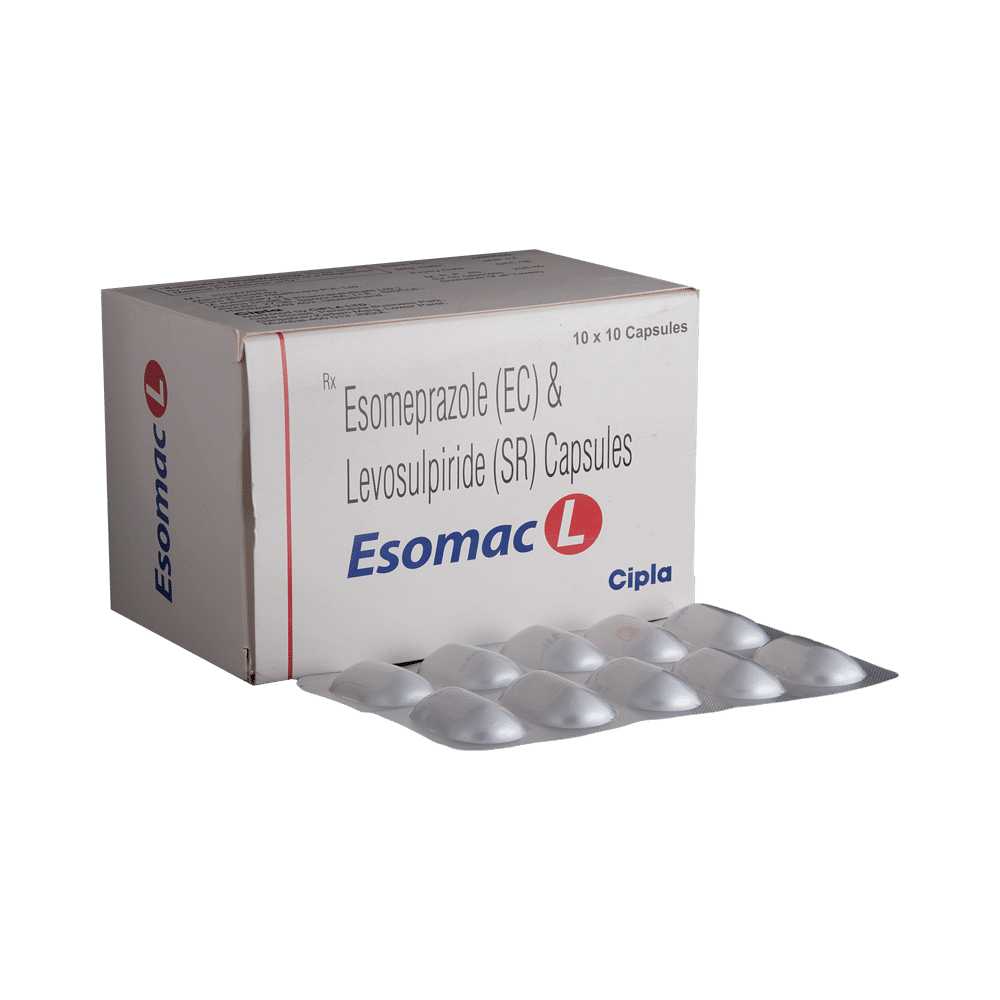
Esomac L Capsule SR

Esocube LS 75mg/40mg Capsule SR
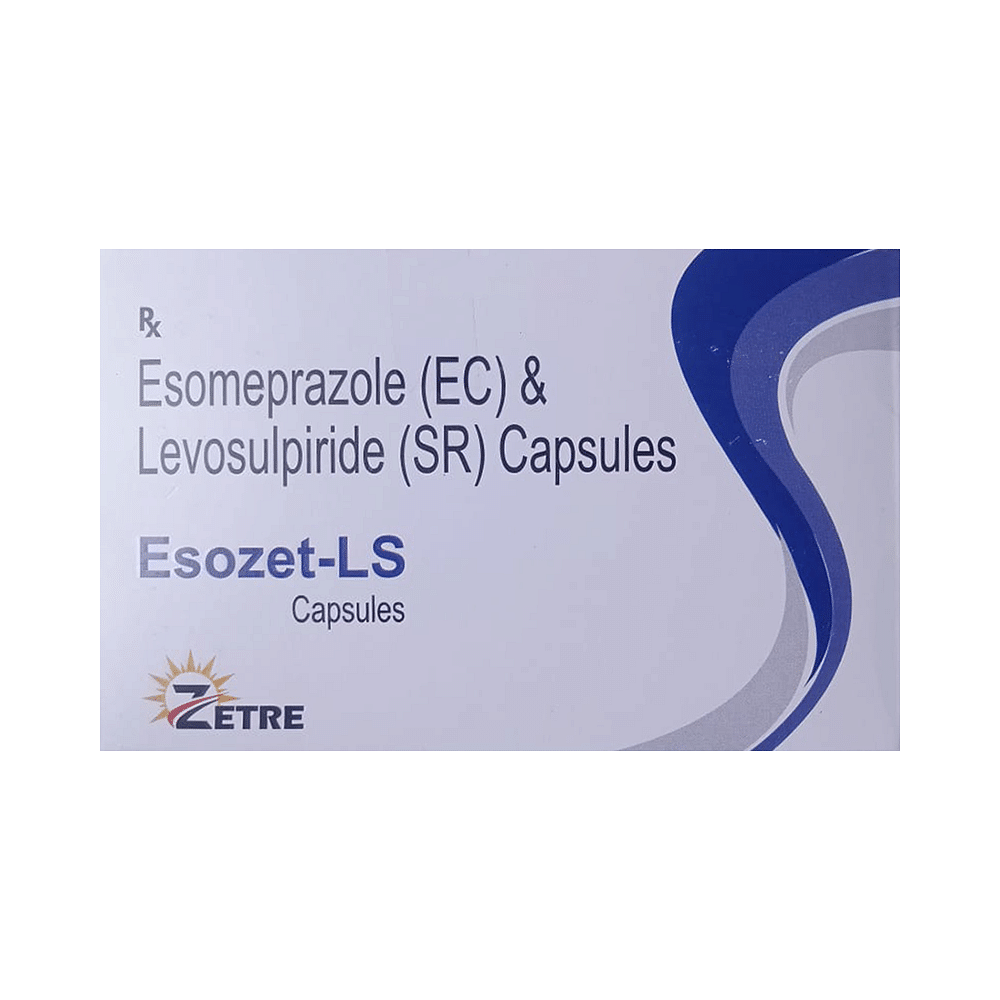
Esozet-LS Capsule SR

Easodil LS Capsule SR

Esolynn Pro L Capsule SR

Esovrol L 75mg/40mg Capsule SR
Frequently asked questions
What are the storage and disposal instructions for Meozole L Capsule SR 75mg/40mg?
Store Meozole L Capsule SR 75mg/40mg in its original container, tightly closed, according to the instructions on the pack or label. Dispose of any unused medication, ensuring it is not accessible to pets, children, or other individuals.
What is the recommended timing for taking Meozole L Capsule SR 75mg/40mg?
Take Meozole L Capsule SR 75mg/40mg exactly as directed by your doctor. It is generally recommended to take one capsule daily on an empty stomach.
Are there any contraindications associated with the use of Meozole L Capsule SR 75mg/40mg?
Meozole L Capsule SR 75mg/40mg should be avoided in patients with a known allergy to any component or excipient of this medication.
Can Meozole L Capsule SR 75mg/40mg cause dizziness?
Yes, Meozole L Capsule SR 75mg/40mg may cause dizziness (feeling faint, weak, unsteady, or lightheaded) in some patients. If you experience dizziness or lightheadedness, it is recommended to rest for a while and resume once you feel better.
Does Meozole L Capsule SR 75mg/40mg increase the risk of fractures?
Several studies in adults suggest that treatment with Meozole L Capsule SR 75mg/40mg may be associated with an increased risk of osteoporosis-related fractures of the hip, wrist, or spine. This increased risk is more pronounced in patients who receive high doses (multiple daily doses) and long-term therapy (a year or longer).


